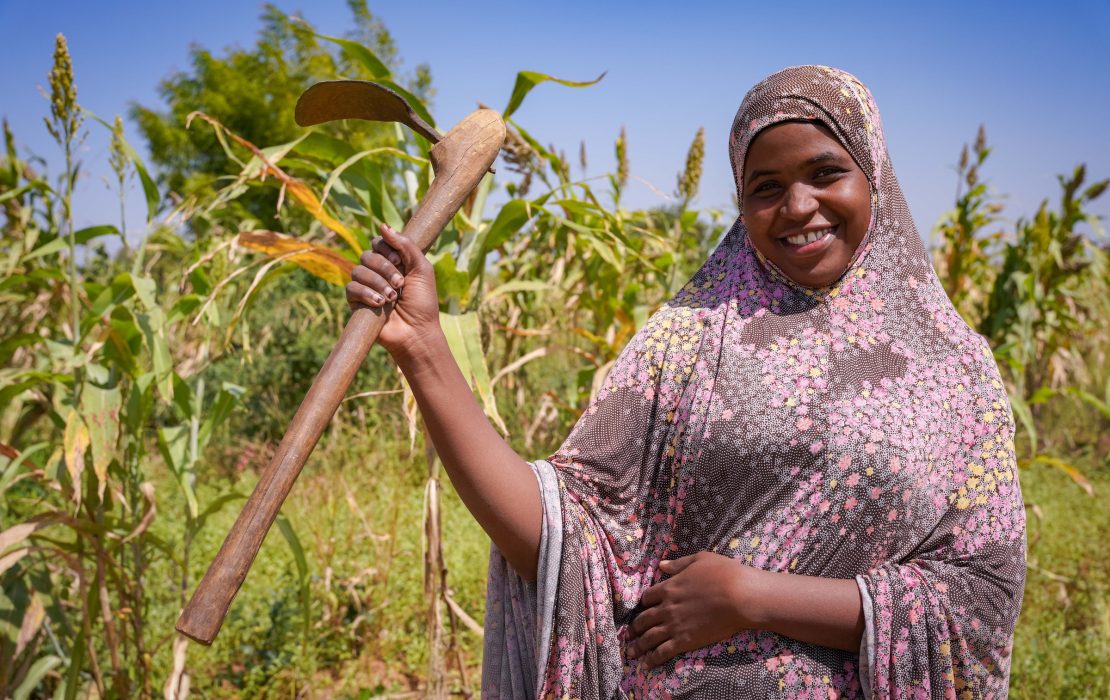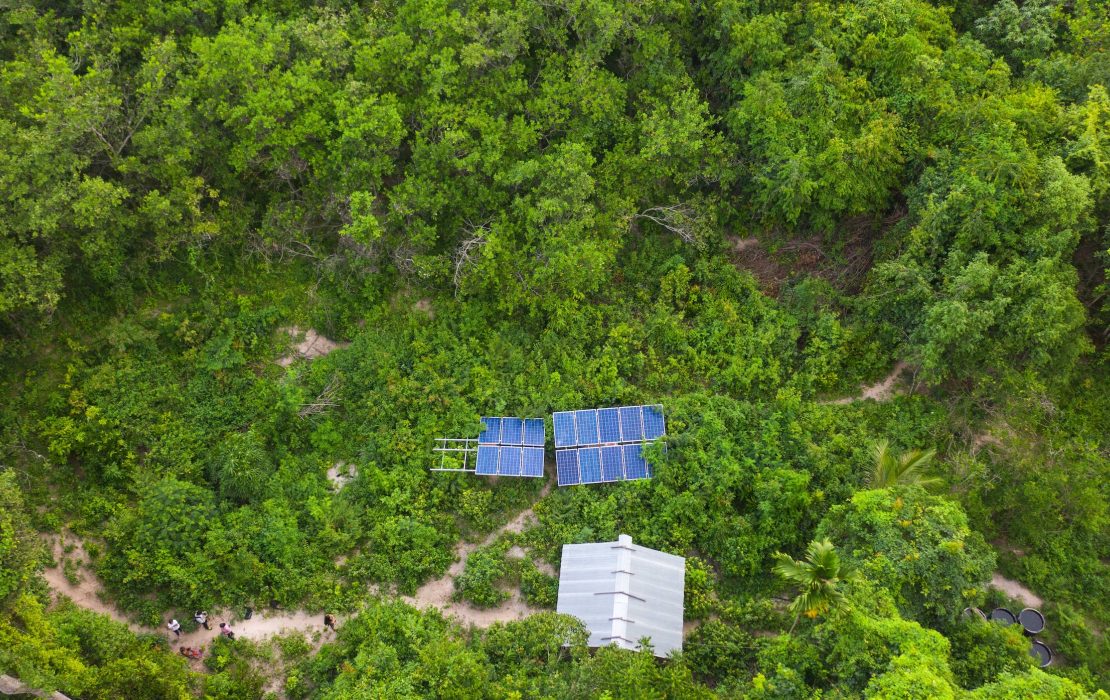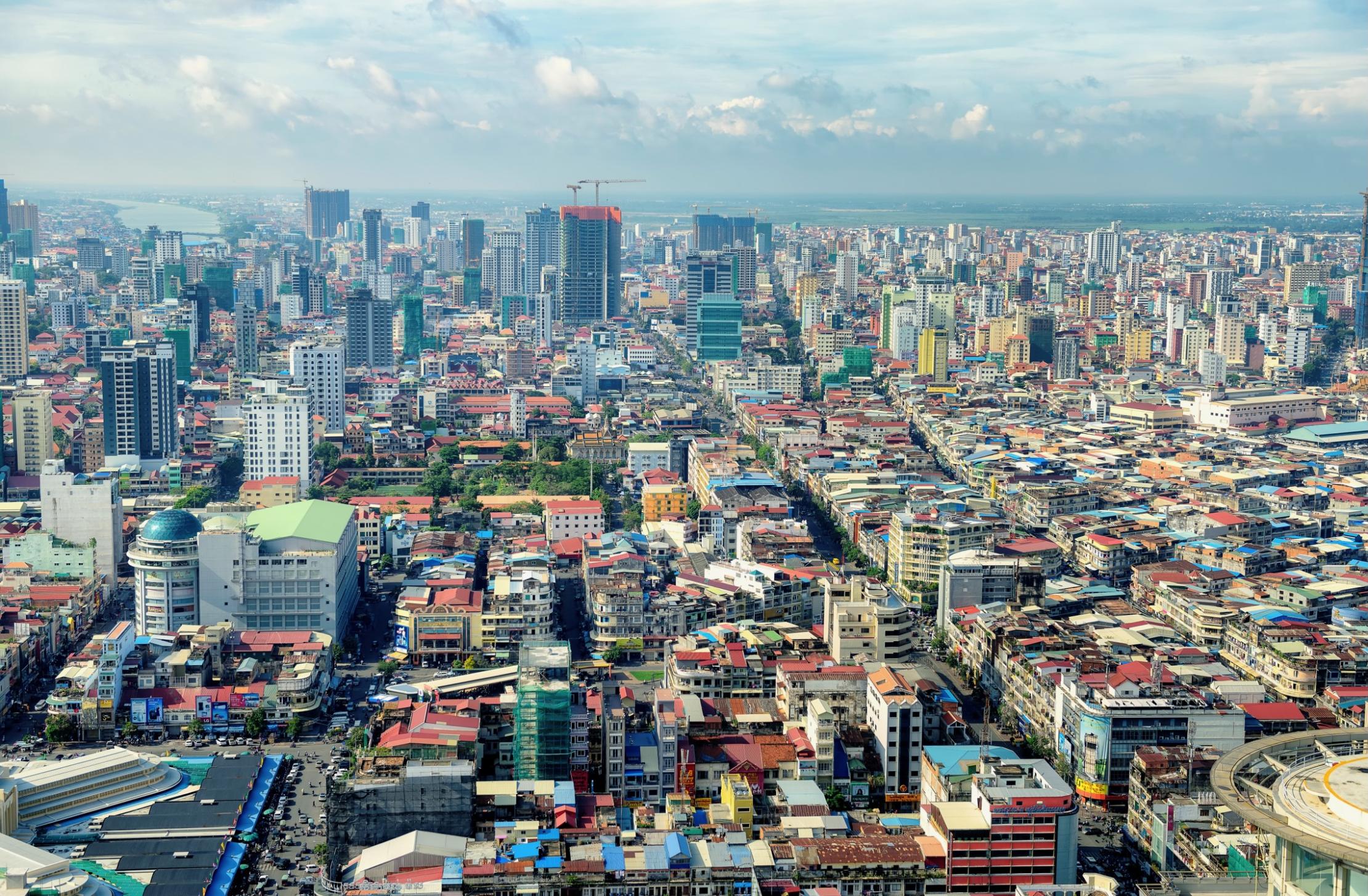
Photo by: UNDP Cambodia
Today plastic pollution has become a global environmental crisis, posing serious risks for our environment, climate and health. The world currently produces over 430 million metric tonnes of plastics each year – more than the weight of 43,300 Eiffel Towers. Without urgent action, global plastics use will almost triple by 2060.
Plastics are convenient and cheap. They are everywhere in our lives, from grocery bags to water bottles. However, our dependence on plastics is overwhelming waste management systems around the globe; plastic waste is often burned or ends up in nature. Every day, the equivalent of over 2,000 garbage trucks full of plastic are dumped into our oceans, rivers and lakes. The Mekong is one of the most polluted rivers in the world, carrying around 40,000 tonnes of plastic into the world’s oceans each year.
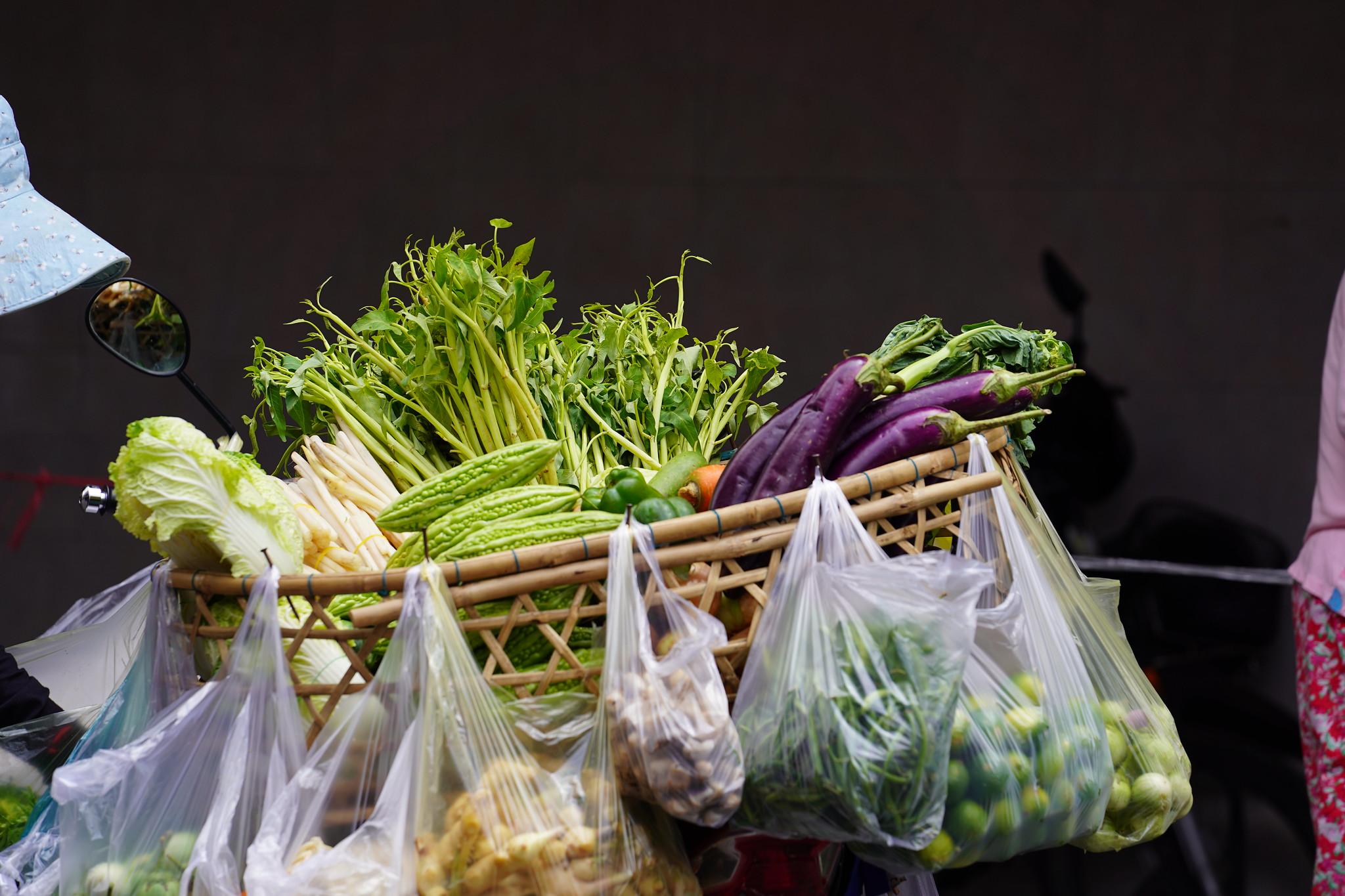
Photo by: Sreysros Keo/UN Cambodia
Plastic pollution poses numerous risks to our health, ecosystems and economies, but as almost all plastics are made from fossil fuels, their use also has strong implications for climate change. The plastics industry is the fastest-growing source of industrial greenhouse gases (GHGs) and could account for 20 percent of oil consumption by 2050. In 2019 alone, plastic production and incineration resulted in GHG emissions equal to those from 189 coal power plants.
Like many countries in the Asia-Pacific region, in Cambodia, a combination of rapid population growth and economic development has led to a surge in the volume of solid waste. Phnom Penh alone currently generates more than 3,500 tonnes of municipal waste daily, of which, approximately 20 percent is plastic.
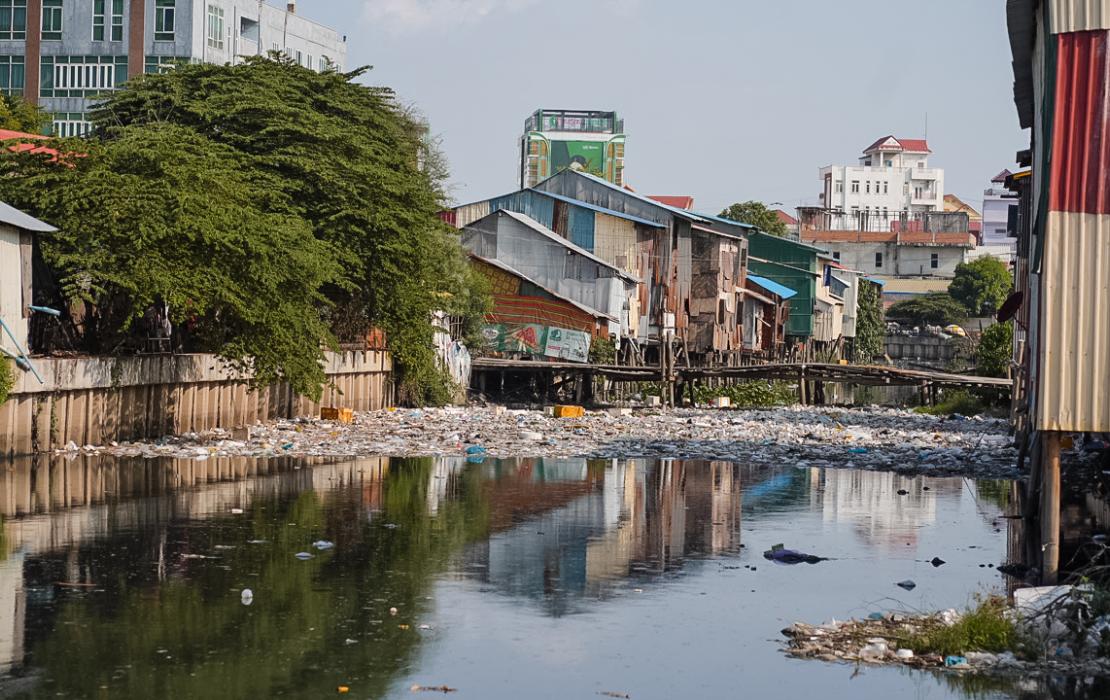
Photo by: Ratha Soy/UNDP Cambodia
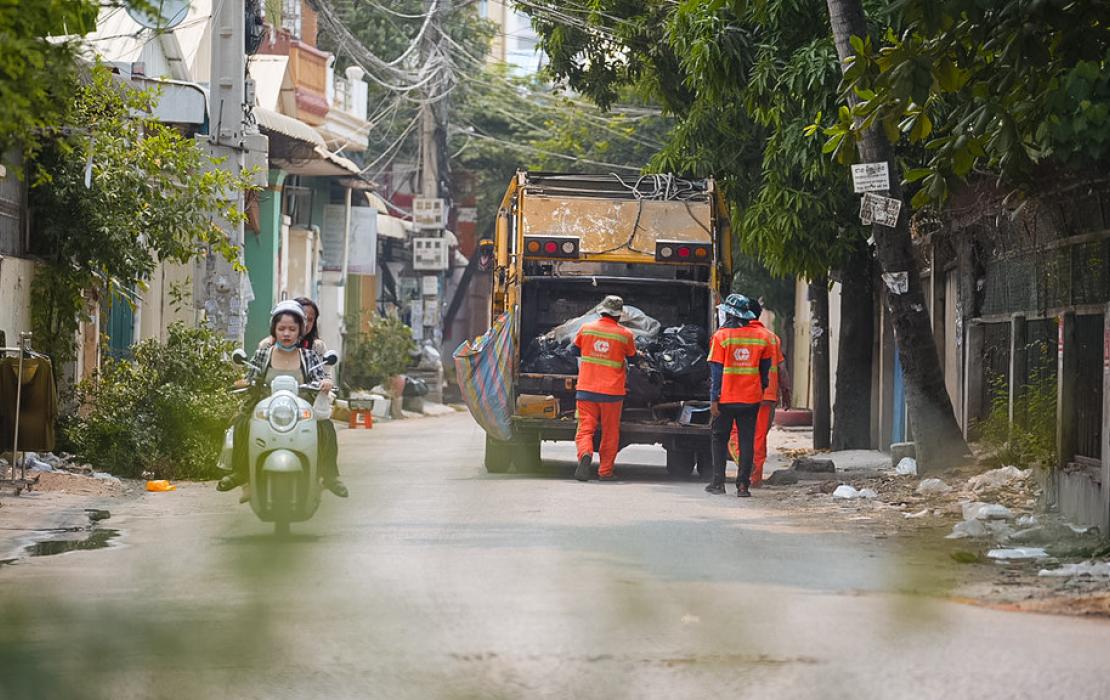
Photo by: Ratha Soy/UN Cambodia
The majority is collected and disposed of at open dump sites. In poor urban and rural areas without waste collection services, waste is often burned in the open. The remaining waste is disposed of on the streets, or into local waterways that carry plastic to rivers. The resilience of major cities such as Phnom Penh and Sihanoukville is severely affected by increased flood risks as plastic waste blocks waterways and clogs sewage and drainage systems.
It has thus become an urgent task for the country to address this problem. Transitioning to a circular economy, with the view to reduce and recycle the ever-growing volume of plastic waste, is an effective way to do so. As part of its updated national climate plan, Cambodia pledged to reduce its emissions by 41.7 percent by 2030 compared to business-as-usual. Importantly, this includes targets on waste as well – to reduce emissions from the sector by 18 percent.
Since 2021, UNDP has supported the Ministry of Environment in implementing the Combatting Marine Plastic Litter project funded by the Government of Japan. The project aimed to address the plastics challenge and promote circular economy through developing an enabling policy and regulatory environment, promoting behavioural change, testing circular business solutions and business models with the private sector, and strengthening local capacity for plastic waste management in select provinces.
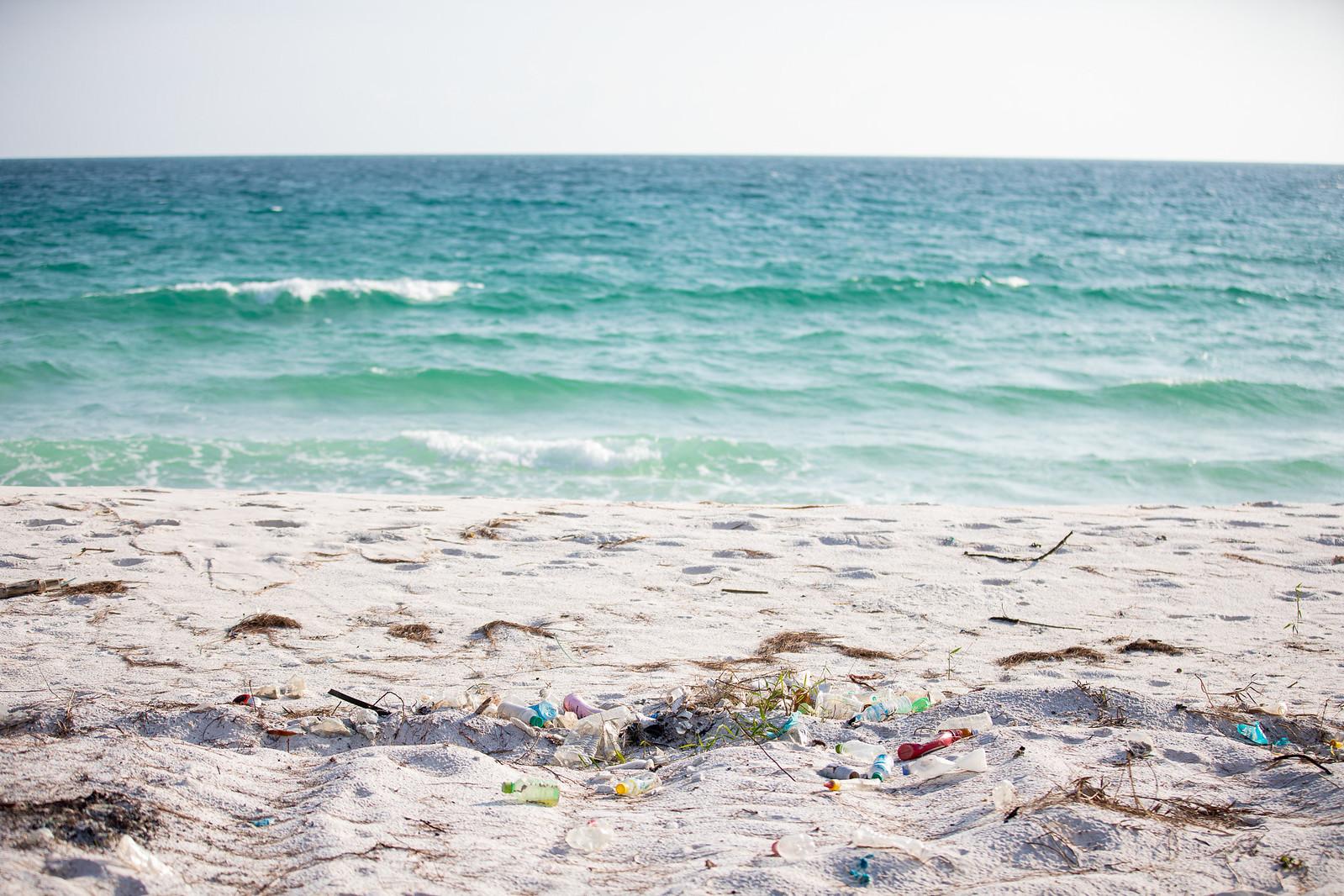
Photo by: Manuth Buth/UNDP Cambodia
To enable the wider adoption of circular solutions, UNDP has supported the drafting of a sub-Decree on Plastic Management, which includes new measures to limit the usage of single-use plastic products. It is also supporting the Ministry of Environment in holding policy dialogues with diverse actors, including the private sector, on Extended Producer Responsibility (EPR) – a principle that holds companies accountable for plastic usage throughout the lifecycle of their products. Under the Climate Promise, UNDP is building the capacity of government officers through trainings on GHG emissions assessment, reporting in the waste management sector and negotiations of the plastic pollution treaty.
Seeking to raise awareness among citizens and businesses to change behaviours towards circular solutions, the project worked with celebrities, social media influencers and community leaders on a campaign. The campaign produced and promoted over 300 videos – reaching over 2 million views on Facebook and TikTok. The result has been that more people are now aware of the dangers that plastics pose. Major supermarkets in the capital city of Phnom Penh are reporting a 50 percent reduction in plastic bag usage.

Photo by: UNDP Cambodia
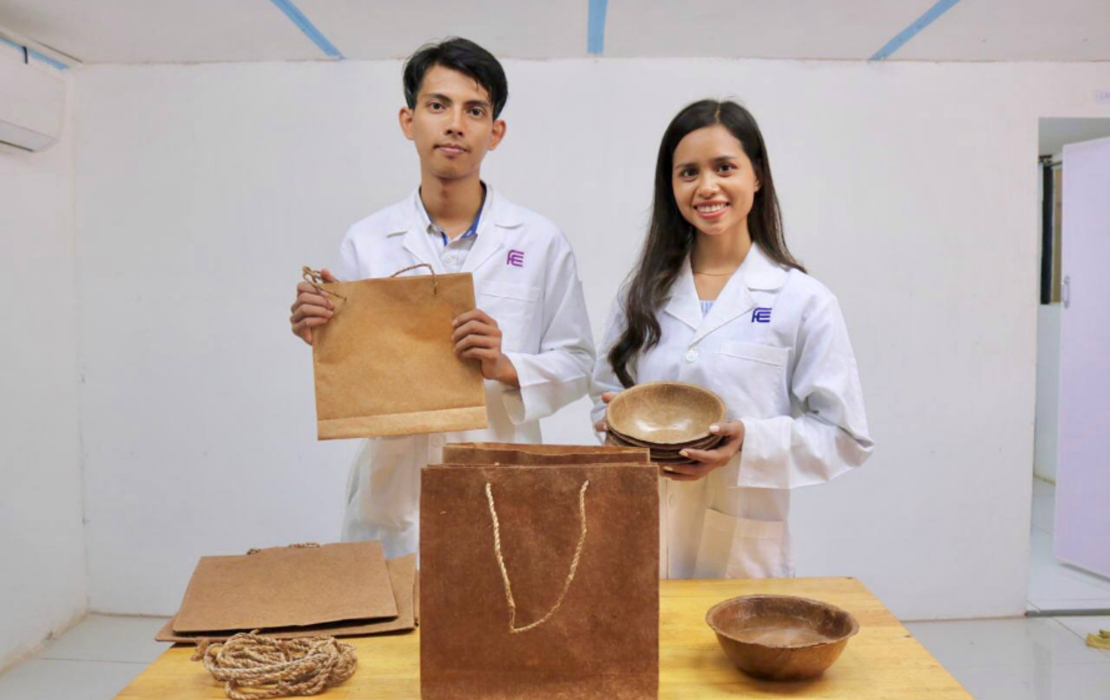
Photo by: Village Works
For businesses, a major challenge was the use of single-use plastics for packaging, which is the dominant type of plastic waste found in landfills and waterways. On top of this, the rapid expansion of food delivery services has resulted in a major increase in volume of single-use plastic packaging. Retail sales in the packaged food market in Cambodia are estimated to have reached US$898.6 million in 2022 with a growth rate of 29.4 percent since 2018. To address this, the project worked with researchers and businesses to identify alternative options and innovative solutions such as rice straws and banana fibers for packaging. In the spirit of innovation, the project also tested a prototype of modified asphalt made from plastic waste for road construction in partnership with Cambodia's Institute of Technology and IKEE group.
For coastal areas in Sihanoukville, where marine plastic pollution is particularly serious, UNDP collaborated with a social enterprise, called TONTOTON, which engaged community members to clean up and safely treat a massive 3,000 tonnes of plastic waste to upcycle hard-to-recycle plastic into plastic boards, and to burn residual, non-recyclable plastics in cement kilns, using the waste to energy approach.
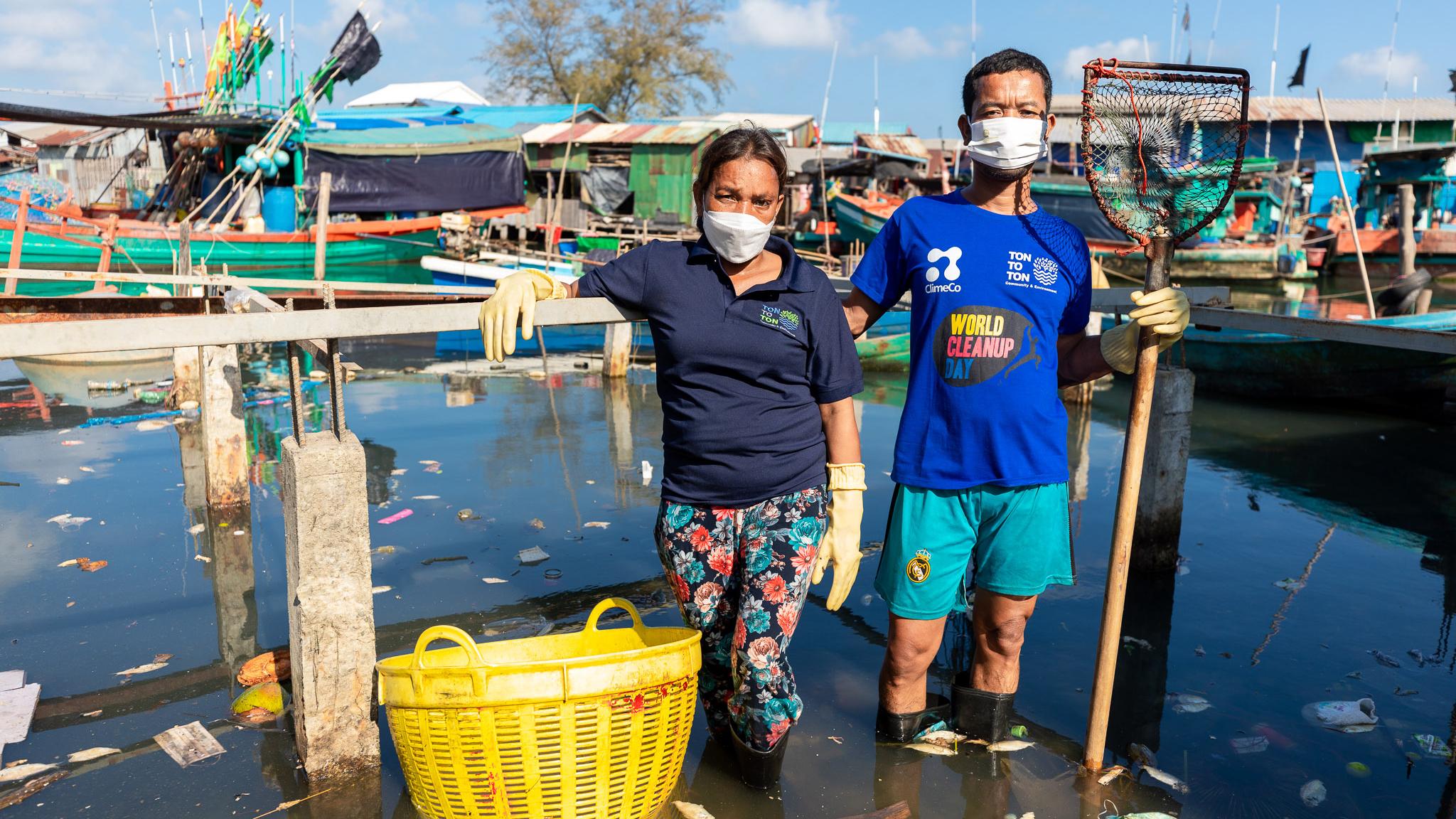
Photo by: Manuth Buth/UNDP Cambodia
Schools were another area of intervention. Close to 100 schools received new water filtration systems – which helped ensure the availability of clean, safe drinking water for more than 100,000 students and critically, reduced PET bottle usage by 30 tonnes annually.
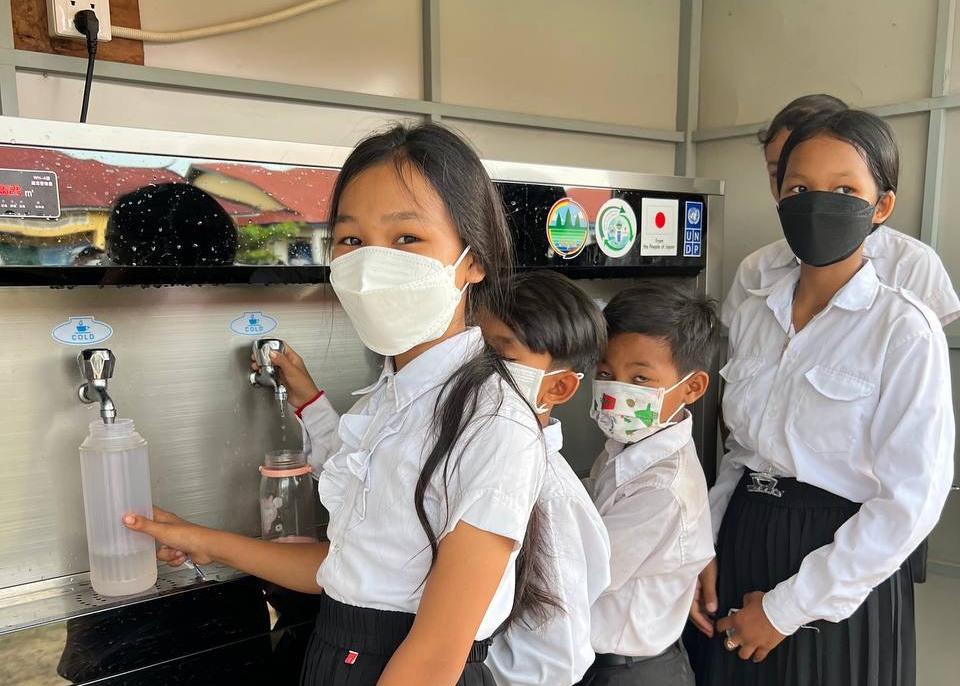
Photo by: Ministry of Environment, Cambodia
In sum, this project and UNDP’s collaboration with the Government of Cambodia has built a solid foundation to reduce plastic pollution, encourage circular solutions and manage waste better. But this is just a start as Cambodia works towards a greener, climate-friendly future.
As Cambodia embarks on a new chapter of its journey to #BeatPlasticPollution with the launch of the Circular Strategy on Environment 2023-2028, UNDP will continue working with the government and all stakeholders to achieve our shared vision for addressing the global plastic crisis and ensuring a low-carbon and sustainable future.
